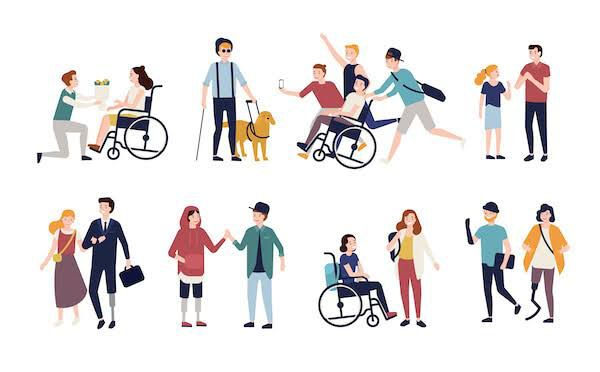- ICSD
- Nov 6, 2023
- 4 min read
Trees are fell, iron ores are dug out of the ground, steel, automobile parts and telecom equipment keep rolling out the production lines. One would expect an economy of high carbon footprint from both disappearing forest and high industrial emission. Yet Sweden has a carbon footprint of 3.2 tons per capita in 2020[1], compared to 7.77 tons of Europe, and 15.3 tons of the US. Actually, it is also lower than 6.66 tons of Hong Kong, a service based economy where manufacturing only accounts for 6.5% of GDP.

Figure 1: CO2 emission in Sweden has been falling since 1970s [2]
Innovating for Doing Good and Doing Well
Though one can attribute the small carbon footprint to public policy, Swedish businesses have a role to play here. The Swedes commercialised the zip, three-point seatbelt and pacemaker, to name a few problem-driven solutions that turned into lucrative business. More recent successes include oat milk and fossil-free steel that focus on innovating to decarbonise.
Oat milk has a surprisingly short history, being invented in Lund University, Sweden in the 1990s in a research on lactose intolerance and sustainable food systems. Aside from providing an option for those who are intolerant of dairy products, oat milk consumption produces one-third of carbon dioxide and no methane, 1/15th the amount of water and 1/10th the land use when compared to dairy milk.[3] It was quickly popularised in the next two decades, as the pioneer Oatly expands into the global market and generates a revenue of US$700 million annually. On the day it was listed, Oatly was valued at US$13 billion.
The efforts go beyond the environmental side and Swedish businesses lead in the social dimension too. For instance, the music streaming company Spotify (yes, they are from Sweden too!) encourages employees to exchange any public holidays for days of their choosing in line with their personal beliefs or religions. This policy of flexibility supports diversity, equity and inclusion in the company, at a minimal cost especially when remote working has become the new normal.
Taking the Lead
Unlike its neighbour Norway, Sweden is not rich in natural resources. Though their GDP per capita now ranks 14 in the world, the last economic crisis was just three decades ago. The economy relies on innovation which leverages on the excellent education, welfare system that encourages risk-taking, support to entrepreneurs and, very importantly, a long-term mindset.
Since the crisis, the government owns or co-owns various companies in different industries. These state-owned enterprises have been required to submit sustainability reports since 2007 in compliance with the Global Reporting Initiative (GRI).[4] In 2012 they were asked to set sustainability goals including diversity, environment issues, human rights, working conditions, anti-corruption measures, business ethics and gender equality, as relevant to the companies’ operations. The private companies quickly followed suit and became a standard before the requirement became mandatory.
Make it Comparable
In an interesting comparison between sustainability reports by Japanese and Swedish companies,[5] PWC points out that reports from Swedish companies are 49-page long on average, less than half of the Japanese counterpart. The Swedish companies’ reporting, while containing a few case studies, focus on strategies, management approach and results. IKEA[6] for instance, demonstrated how it connects the materiality analysis, sustainability issues and the company’s focus areas. The report then discusses the progress on each issue and key activities under each target. It concludes by listing all the activities under each of the Sustainable Development Goals.
83% of Swedish companies claim that their reports are drafted “in accordance” with the GRI Sustainability Reporting Standards. This provides a consistent framework for stakeholders like investors to compare the activities towards sustainability targets and its reporting between companies.
Passed Down the Generations
One commonality between Hong Kong and Sweden is that many businesses are owned by the founder or the founding family. “It has this long-term mentality, where the focus is on providing services to customers and looking after employees.” Baillie Gifford commented on the Swedish business philosophy.[7] Atlas Copco, the Swedish maker of industrial equipment, is one of the longest held stocks of Baillie Gifford which is famous for their long-term investment. “The family is there to protect and maintain these businesses. It wants to pass them onto the next generation in a better shape than they inherited them.”
It definitely reminds us of how generational successions take place in family businesses in Hong Kong. Taking good care of employees as an investment on talents has been a characteristic of family enterprises in Hong Kong. Another contribution in the social aspect is consistently investing in community affairs such as education, public health and bottom-of-pyramid.
ESG goes beyond gathering data and providing insights on how it supports the investment cases. Sweden provides good cases on integrating creative inspiration with practical problem solving, and commercialising it to build successful enterprises, and investing for the long term. Adopting GRI early as the reporting framework, the Swedish companies have also made their ESG reports focused and comparable. Is it perfect? No. Is there anything we can learn from them? A lot.
[3] https://www.bbc.com/news/science-environment-46654042 [4] https://sweden.se/work-business/business-in-sweden/sustainable-business [5] https://www.pwc.com/jp/en/knowledge/column/sustainability-reporting-in-japan-and-sweden.html [6] https://gbl-sc9u2-prd-cdn.azureedge.net/-/media/aboutikea/newsroom/publications/ documents/ikea-sustainability-report-fy22.pdf [7] https://www.bailliegifford.com/en/uk/individual-investors/insights/ic-article/2022-q3-swedish-companies-podcast-10012159/
Author: Mr. Lawrence Leung, Certified ESG Planner - ICSD 國際可持續發展協進會



